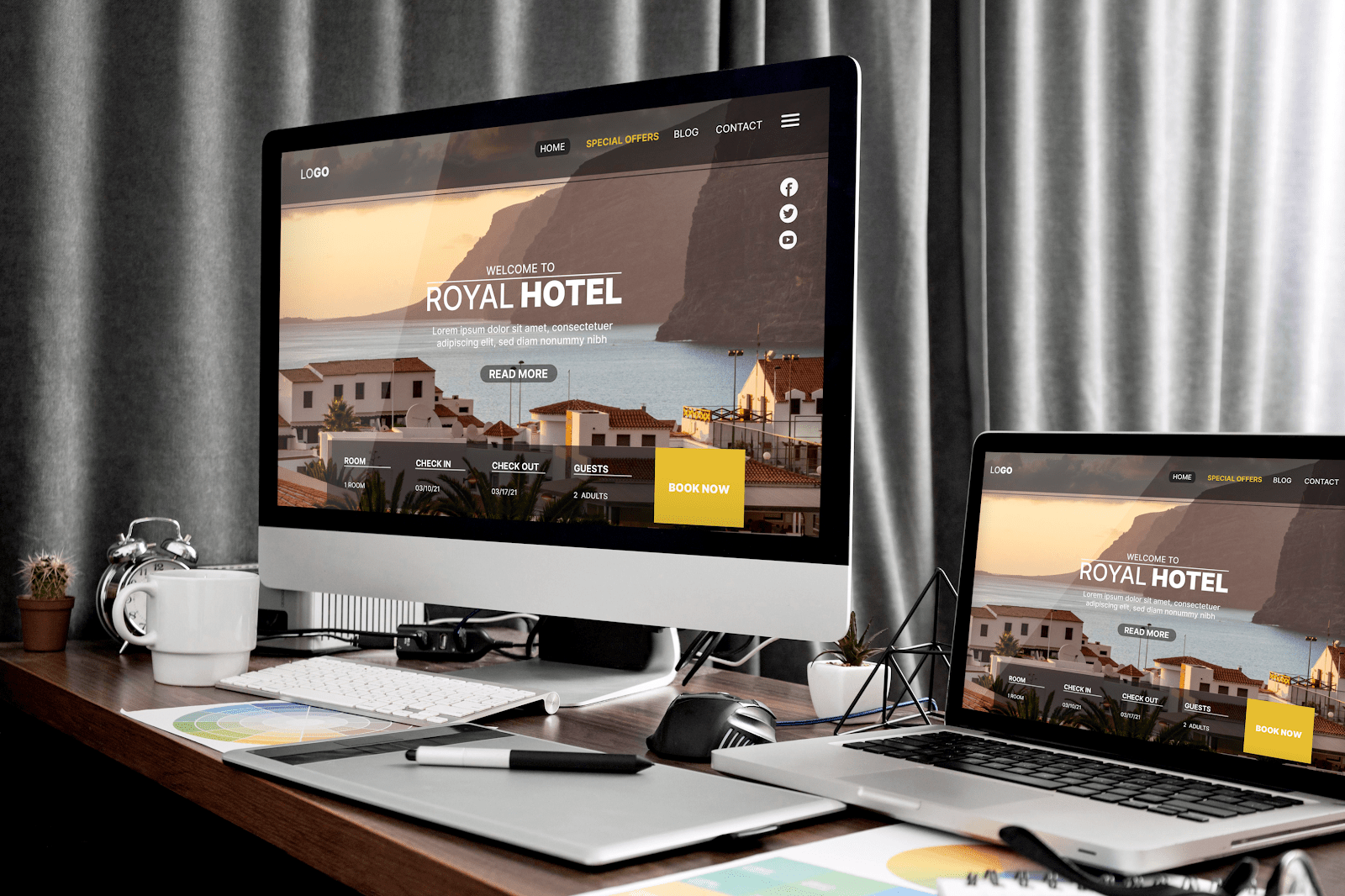A retained user is someone you've satisfied so much that they keep coming back to your brand. In the same...

6 Main Qualitative Questions Examples
Qualitative research uncovers the details of human behavior, beliefs, and feelings. It gives us insights that numbers can’t always tell.
These research questions help us understand the “how” and “why” of things.
In this article, we’ll look at six examples of good qualitative questions. We aim to highlight how picking the right questions can improve your study.
Qualitative vs. Quantitative Research
It is important to understand the differences between qualitative and quantitative research.
Qualitative research questions aim to explore concepts, experiences, and perspectives. They offer the qualitative research expert an in-depth insight into the subject.
On the other hand, quantitative research questions focus on measurable aspects. They seek statistical comparisons to reach factual conclusions.
Both quantitative and qualitative questions have important roles in research. They serve unique purposes and provide different types of data.
The Importance of Qualitative Questions
Unlike quantitative research, qualitative questions aren’t about numbers and statistical analysis. It’s about understanding the reason behind data from a focus group.
Why pick qualitative research? When conducting qualitative research, you want to know why someone does something, not just count how many times they do it.
You ask, and you listen. That’s the power of qualitative research. The right question is a key that unlocks valuable knowledge.
Key Elements of Effective Qualitative Research Questions
Effective qualitative research aims to unveil hidden truths. But how do you achieve it? With thought-provoking questions.
Here are the elements of the qualitative research questions for an in-depth exploration:
Open-ended and Exploratory
Qualitative research questions aim to understand the “how” and “why” of a topic. They invite people to share their views and stories.
Open-ended and exploratory questions help researchers grasp complex issues. These questions allow for diverse and detailed answers to a particular subject.
Clarity and Focus
Qualitative research questions need to be clear, focused, and brief. They help ensure the research meets its goals.
Being specific guides data collection and analysis, leading to valuable findings.
Relationships and Personal Experiences
Qualitative research questions examine how different factors relate to personal experiences and seek to understand why people act in certain ways.
They also explore how people respond to their surroundings, including culture and workplace rules.
Ethical Considerations
When creating qualitative research questions, it’s important to think about ethics. Questions need to respect participants’ dignity, privacy, and independence.
This makes sure that the research does not cause harm or distress. Ethics also matter when explaining and sharing results, as researchers must present data truthfully and with care.
Role in the Research Design
The right qualitative research questions are crucial in the design of research projects for several reasons:
- Guidance on Research Methods: Directs the choice of qualitative research methods. Options include:
- Focus Groups: Small groups discuss topics with a moderator.
- In-Depth Interviews: Offers detailed insights from individual viewpoints.
- Qualitative Surveys: Gathers open-ended responses from a broad audience.
- Ensuring the Right Tools are Used: Matching objectives with the most suitable research tools. Enables thorough investigation and captures the complexity of experiences.
- Facilitating a Clear Understanding: Aims to uncover not just what is happening but why. Explores thoughts, feelings, behaviors, and the effects of various influences.
- Informing the Research Design: Influences all design aspects, including participant selection and analysis framework. Ensures ethical standards guide the research process.
6 Types and Examples of Qualitative Questions
Here are six types of qualitative questions with examples:
1. Descriptive
These questions are aimed at describing the characteristics or features of a product.
- Example 1: How do users describe their initial impressions when they first interact with our new software interface?
- Example 2: What are the specific colors and design elements that users notice about the new smartphone model when they see it for the first time?
2. Exploratory
Exploratory questions are designed to investigate how things work or how users interact with a product.
- Example 1: What strategies do users employ to navigate through the features of our newly launched app?
- Example 2: How do users attempt to solve problems when they encounter errors using our digital service platform?
3. Experiential
These questions focus on the user’s experiences and emotions related to the product.
- Example 1: Can you describe a memorable experience you had while using our product?
- Example 2: What emotions do you feel when using our product under stressful conditions?
4. Comparative
Comparative questions look at differences between products, user groups, or other variables.
- Example 1: How do new users’ experiences with our product compare to those of long-term users?
- Example 2: In what ways does our product perform better or worse than our main competitor’s product in similar conditions?
5. Process-oriented
These questions delve into the processes or sequences of actions related to using the product.
- Example 1: Can you walk me through the process you typically follow when setting up our product for the first time?
- Example 2: What steps do you take when you troubleshoot an issue with our product?
6. Theoretical
Theoretical questions aim to understand the underlying principles or theories that explain user behavior or product dynamics.
- Example 1: What theories can explain why users prefer our product’s design over traditional designs?
- Example 2: Based on your knowledge, what psychological principles might influence how users adapt to our product’s innovative features?
How to Choose Qualitative Research Questions?
When selecting qualitative questions, the aim is to deeply understand user interactions, perceptions, and experiences with the product.
Here are some key considerations for choosing good qualitative research questions:
- Define Your Objectives
Start by clearly defining the research objective of your product testing. What specific aspects of the product are you looking to evaluate? Are you interested in usability, aesthetics, functionality, or user satisfaction? Your objectives will guide the types of questions you need to ask. For example, if user satisfaction is your focus, you might ask about the user’s emotional response to the product.
- Consider the Type of Qualitative Research
Different types of qualitative methods—such as ethnographic, narrative, phenomenological, or grounded theory—may influence the style and structure of your questions. For instance, narrative research focuses on stories and experiences, so your questions should encourage storytelling about product use.
- Ensure Questions are Open-Ended
Qualitative questions should be open-ended to allow for detailed responses that can reveal insights not anticipated by the researcher. Instead of asking, “Do you like our product?” which prompts a yes or no answer, ask, “How do you feel about our product?” to encourage a more detailed and nuanced response.
- Be Clear and Concise
While questions should allow for open-ended answers, they must also be clear and concise to avoid confusing the respondent. Ambiguity can lead to unreliable qualitative data, as different participants might interpret the questions differently.
- Sequence the Questions Logically
The order in which you ask questions can impact the flow of conversation and the quality of information gathered. Start with more general questions to make the respondent comfortable before moving to more specific or sensitive topics. This sequence helps build rapport and can lead to more honest and detailed responses later in the discussion.
- Consider the Participant
Tailor your questions to fit the background and experience level of your participants. Questions that are too technical or too basic can frustrate users or fail to elicit useful information. Understanding your audience allows you to frame questions that are appropriately challenging and engaging.
- Pilot Test Your Questions
Before finalizing your set of questions, conduct a pilot test with a small group of participants. This testing can reveal if any questions are confusing or ineffective at eliciting useful responses. Feedback from this phase can be invaluable in refining your questions.
- Be Prepared to Adapt
Finally, while it’s important to prepare your questions carefully, also be flexible during actual interactions. The conversation may reveal new paths of inquiry that are worth exploring. Being adaptive can help you capture deep insights that strictly adhering to a prepared list of questions might miss.
Start Collecting Qualitative Data Right Now
It takes less than 5 minutes to set up your first website or app feedback form, with FullSession, and it’s completely free!
After that, you will be able to collect high-quality feedback and avoid the guesswork.
FullSession Pricing Plans
The FullSession platform offers a 14-day free trial. It provides two paid plans—Basic and Business. Here are more details on each plan.
- The Basic plan costs $39/month and allows you to monitor up to 5,000 monthly sessions.
- The Business plan costs $149/month and helps you to track and analyze up to 25,000 monthly sessions.
- The Enterprise plan starts from 100,000 monthly sessions and has custom pricing.
If you need more information, you can get a demo.
FAQs about Qualitative Research Questions
What is a qualitative research question?
Qualitative research questions focus on ways to gather deep insights into people’s experiences, beliefs, and perceptions. Such questions invite detailed narrative responses.
Can qualitative research questions change during the study?
It’s not uncommon for qualitative research questions to evolve during the course of a study. As preliminary data is collected and analyzed, new insights may emerge that prompt a qualitative researcher to refine their questions.
How are qualitative questions used in business?
Businesses use qualitative questions to uncover valuable insights. They can explore customer behavior, employee satisfaction, or market trends. One example could be: “What factors drive consumer loyalty to our brand?”
Are there specific words to use in qualitative research questions?
Yes, use words like “describe,” “explain,” and “how” to frame qualitative questions. These terms promote more detailed and comprehensive answers. They are key to qualitative analysis.




